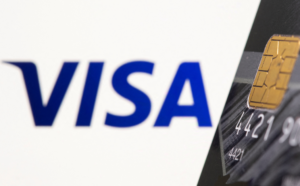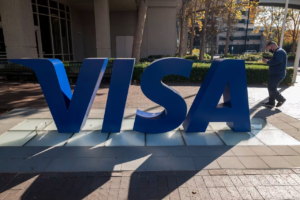The U.S. government has officially filed a lawsuit against Visa, accusing the financial giant of illegal actions to stifle competition and maintain its monopoly in the debit card market. This lawsuit is part of a series of tough measures by the Biden administration, which is known for its aggressive approach to monopoly concerns, also known as antitrust laws in the U.S.
Here's ads banner inside a post
According to allegations by the Department of Justice, Visa punished companies that wanted to use alternative payment networks and bribed potential competitors to maintain control over the market. They claim that these actions have stifled innovation and caused significant additional fees for American consumers and businesses. Attorney General Merrick Garland stated, “Visa’s dominance has allowed it to extract fees that were far higher than it could have charged in a competitive market.”
Visa, which processes more than 60% of debit card transactions in the U.S. and generates over $7 billion in fees annually, quickly denied the allegations. Julie Rottenberg, Visa’s general counsel, asserted that the claims were baseless and that Visa would defend itself in court. “Today’s lawsuit ignores the reality that Visa is just one of many competitors in a growing debit space, with many thriving entrants,” she said.
The lawsuit claims that Visa used a “web of contracts” that required businesses to commit to routing a certain volume of transactions to the Visa network or face higher fees—effectively creating illegal “exclusive deals.” This practice began after a new law in 2012 aimed to bolster competition in the debit card market by requiring banks to allow debit cards to be usable on at least two competing payment networks.
Here's ads banner inside a post
Visa is also accused of leveraging its market dominance to threaten tech companies like PayPal with massive fees unless they signed deals committing to routing payments through Visa. The Department of Justice has asked the court to rule that Visa is a monopoly and to bar it from continuing these alleged anticompetitive practices.
George Alan Hay, an antitrust law expert from Cornell Law School, stated that the case is not overly radical but will still be a challenge for the government. A key issue will be defining the debit card market and whether 60% is enough to constitute a monopoly. He noted, “Visa, after decades of regulatory scrutiny, will not be surprised to face litigation. They’ve been prepared with answers.”
This lawsuit is not just a significant legal challenge for Visa but also opens up a broader battle over power and fair competition in the global financial industry.
Here's ads banner inside a post

